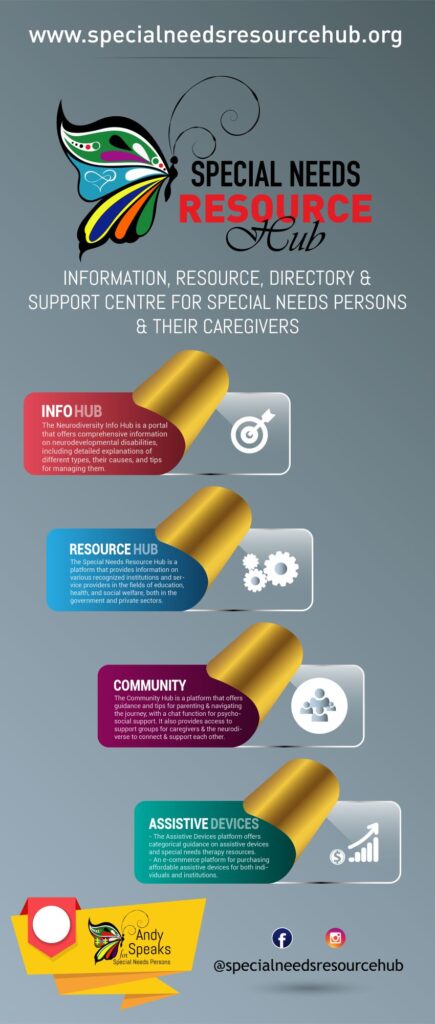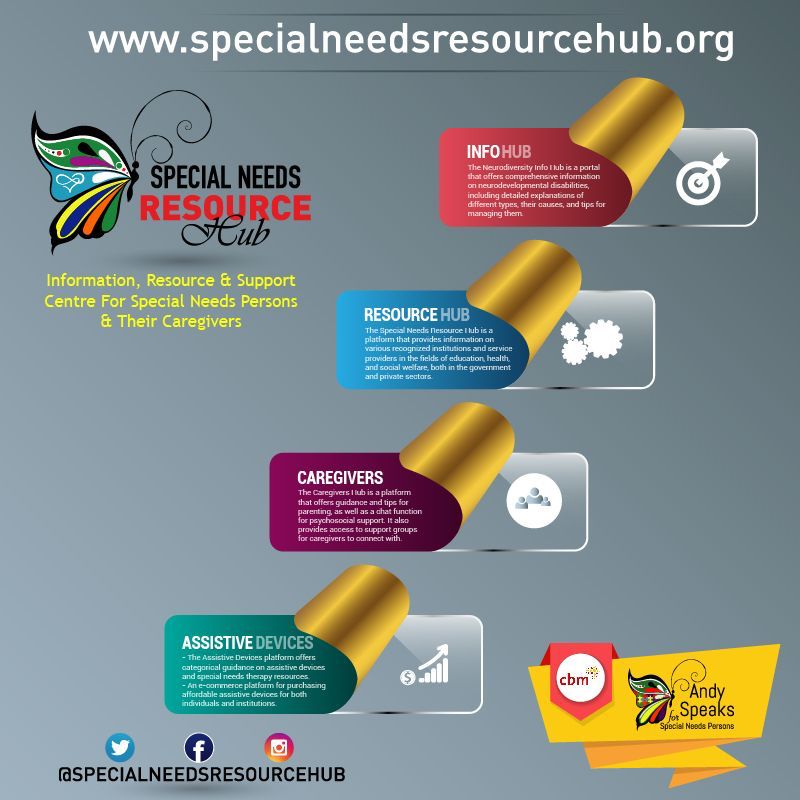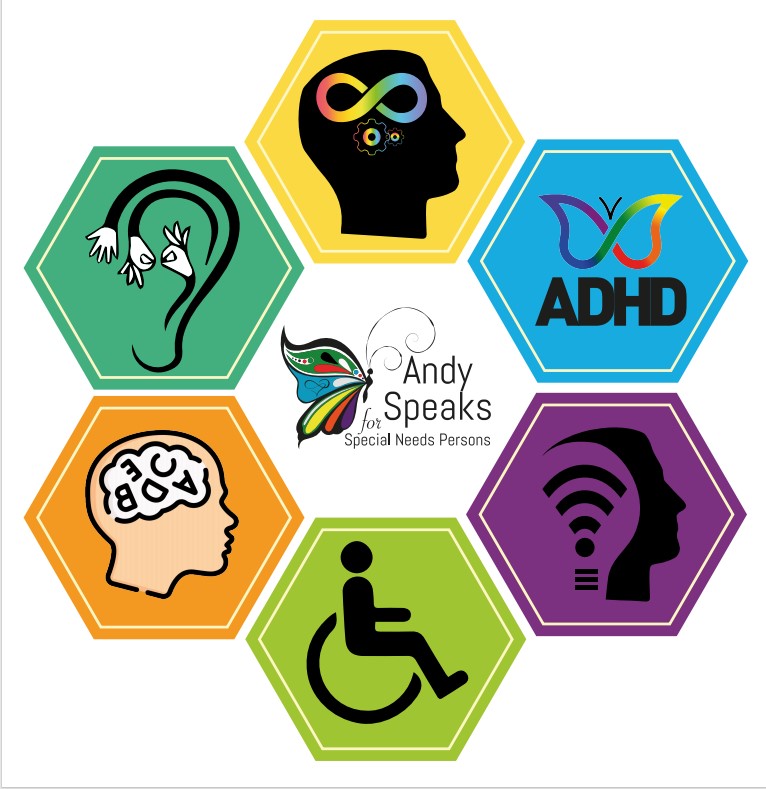Introduction

The Special Needs Resource Hub is a web application portal that provides a centralized location for the neurodiverse and caregivers to access information, tools, and resources to support them in their journey.
Persons with Neurodevelopmental Disabilities face significant challenges accessing information, education, healthcare, social services, therapy, and assistive devices, which hinders their ability to achieve their full potential. Caregivers are also impacted as they strive to access correct information to understand, support, and care for their loved ones post diagnosis
The Special Needs Resource Hub provides information on various disabilities, including their causes, symptoms, and treatments, as well as strategies for managing and coping with the associated challenges. It also offers resources on accessible technology, equipment, and services, as well as guidance on navigating the healthcare, education, and employment systems.
The goal of a resource hub for disabilities is to promote early intervention, inclusivity, equal opportunity, and empowerment for individuals with disabilities by providing them with the resources they need to live full and meaningful lives.



The platform is a project by Andy Speaks 4 Special Needs Persons Africa, an organisation that champions for the mainstreaming of neurodevelopmental disabilities in matters Health, Education & Social Protection in line with the Kenyan Constitution, UN Convention on the Rights of Persons with Disabilities (UN CRPDs) and Sustainable Development Goals (SDGs) in Africa.
Through her experience raising two neurodivergent sons, and interacting with other caregivers and autistic individuals, the founder Dr. Sylvia Mochabo Akinsiku through Andy Speaks seeks to bridge the gap and ease the experience for others
World Autism day theme 2023 aligns perfectly with the goal of this portal:
“We must do better – By promoting inclusive Education, Equal employment opportunities, self determination and an environment where every person is respected. And as we do so we also recognize the role of families caregivers, and support networks in the lives of persons with Autism.”
Disability Background

According to the UNCRPD Article 1, persons with disabilities include those who have long-term physical, mental, intellectual, or sensory impairments that may hinder their full and effective participation in society on an equal basis with others.
The definition specifically mentions that disability results from the interaction between impairments and various barriers, including attitudinal and environmental barriers, which may hinder the full and effective participation of individuals with disabilities in society.
In essence, the UNCRPD adopts a social model of disability, emphasizing the importance of removing barriers to ensure the inclusion and equal participation of persons with disabilities in all aspects of life. This approach shifts the focus from the individual’s impairment to the societal and environmental factors that contribute to exclusion. Below are the types of disabilities:
1. Physical Disabilities:
Refers to impairments that affect a person’s mobility or physical functioning
• Examples include paralysis, muscular dystrophy, and limb amputations.
2. Intellectual Disabilities:
• Involves limitations in intellectual functioning and adaptive behavior.
• Conditions like Down syndrome and intellectual developmental disorders fall into this category.
3. Sensory Disabilities:
Encompasses impairments related to the senses-sight, hearing, touch, taste, and
smell. Examples include blindness, deafness, and conditions affecting the sense of touch
or taste.
4. Psychosocial or Neurodevelopmental Disabilities:
• Encompasses a range of mental health conditions and neurodevelopmental disorders.
• Conditions like autism, ADHD, depression, and schizophrenia fall into this category.
The right to health is universally and comprehensively understood as the “right to the highest attainable standard of health”. The World Health Organization (WHO) defines health as a state”Of complete physical, mental and social well being and not merely the absence of disease or infirmity. According to the Kenya Notional Disability Act-2003. – disability” means a physical, sensory, mental or other impairment, including any visual,-hearing, learning or physical incapability, which impacts adversely on social, economic or environmental -participation. It follows therefore that the right to health is dependent on the extent to which the determinants of primary.health is offered in the community. The guaranteeing of the right to health, is thus a core function of the government, and has put in place policies, laws and programmes in place for implementation.

Facts
- The choice of “instrument” used to measure the different aspects of disability
- 7 billion people: world population
- Over 1 billion people in the world have some form of disability, that’s 1 in 7
- More than 100 million disabled persons are children
- Children with disabilities are almost four times more likely to experience violence than non-disabled children
- 80% of all people with disabilities live in a developing country
- 50% of disabled persons cannot afford health care
- 160 countries have signed the Convention on the Rights of Persons with Disabilities






WE BRIDGE THE GAP
To be informed is to be Empowered
At our organization, we strive to empower, educate and integrate through compassionate support, inclusive support and guidance.
Upcoming Events
Bringing together the community for support, empowerment and education through events and conferences for individuals with special needs and their caregivers



Our shop
Our Listings
Key Disability Dates










Neurodigest Bytes
Have any question?
+254 734 635 274
